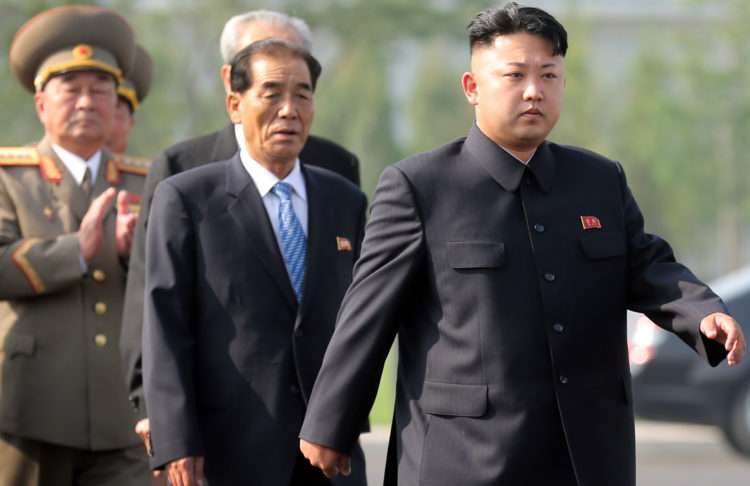Not long ago, the United States found itself in the middle of what was increasingly looking like a nuclear standoff with North Korea. President Trump and Kim Jong Un exchanged charged statements in the press, military units from a half dozen countries postured throughout the Pacific, and Pacific powers like Russia and China chimed in on a daily basis — often looking to both encourage peace and discredit America’s diplomatic efforts at the same time. Kim Jong Un’s apparently successful endeavor to develop and test nuclear weapons with nearly global reach was not only significant for the tiny, isolated nation — it had the potential to destabilize an international order that had survived for over 70 years.
Then, seemingly as quickly as it escalated, tensions began to ease. North and South Korea engaged in diplomatic talks that led to the North’s involvement in the Olympics being held in South Korea, and soon after that, talks between the United States and North Korea commenced. Since then, the success of these talks have been questionable, but there’s no denying that, tense as relations may be, they’re better than they were just months ago. The question that remains in the minds of analysts, however, is why?
Some are keen to credit President Trump’s aggressive tone and rhetoric toward Kim’s North Korean regime. The American president took a significant departure from the measured and stately deliveries of past administrations, taking instead to calling the North Korean leader names and threatening him with the might of the U.S. military. At the time, the effort was condemned as needlessly aggressive, but as things began to change on the Korean peninsula, some saw it as a clear sign that Trump’s professional wrestling approach to international diplomacy had worked. However, the behavior of Kim Jong Un in the intervening months seems to indicate that it may have been a different Trump-led initiative that actually changed things, it just wasn’t one that makes for sexy headlines: the implementation of stricter sanctions.
While Kim’s public appearances last year were primarily military in nature, visiting weapons platforms like new ballistic missiles and offering pre-packaged lines about the dominance his military was putting on display, the past few months have been quite different in both delivery and approach. Instead, Kim has been visiting factories, farms, and new construction projects intended to improve the lives of the Korean people. His dialogue, while still often vilifying the United States, has turned toward an effort for economic prosperity rather than empty threats of pre-emptive nuclear strikes. Even more tellingly, Kim has begun publicly admonishing officials that fail to deliver on projects he sees as necessary for the well being of the North Korean people.
Recently, Kim visited the site of a hydroelectric dam that has been under construction for 17 years. The dam, once completed, could help to alleviate the sweeping power outages that plague North Korea, but the nation’s leader instead found progress at a standstill. Those responsible for the dam cited a lack of workers, equipment, and materials, but Kim — who has a history of executing officials that failed to live up to his expectations — chose instead to make a public statement that held them accountable to the citizens of the nation.
“What makes me angrier is that these officials will never fail to miss the opportunity to show their shameless faces and take credit when a ceremony is held to mark the completion of a power plant,” Kim said, according to the North’s Korean Central News Agency. “I am speechless.”
This apparent change of heart is, of course, an important bit of theater for the leader of a desperate nation, and likely indicative of how difficult things have become for Kim’s people under increasingly tight sanctions throughout Trump’s engagement with the North Korean nuclear threat. Instead of striving to appear as a powerful military leader as he has in the past, Kim now wants to appear a man of this people — eager to show how he shares in their pressing concerns and, more importantly, what he’s doing to remedy them. That effort means Kim’s usual method of unacknowledged executions simply won’t cut it. The people need to see their leader fighting to improve their lives in a very public way, or the seeds of dissent that have already begun to germinate within the nation may begin to grow too large to manage.
Koh Yu-hwan, a professor of North Korean studies at Dongguk University in Seoul, directly credits the effect the sanctions have had with this shift in Kim’s domestic approach.
“What’s clear is that Kim Jong-un is desperate to ease sanctions and find his own ways of boosting production and improving the lives of his people,” he explains. “At the same time, he is shifting the blame to his underlings by criticizing lazy officials.”
It would seem then that it’s not truly international pressure that Kim seems to be bowing to, but rather the pressure he’s feeling from his own populous — who have been living in increasingly desperate conditions in recent years, as indicated by the rapid increase in defectors and their general state of health upon arriving in South Korea. Whether or not that pressure is enough to press him into negotiating away his newly acquired nuclear power, however, remains to be seen.
Already have an account? Sign In
Two ways to continue to read this article.
Subscribe
$1.99
every 4 weeks
- Unlimited access to all articles
- Support independent journalism
- Ad-free reading experience
Subscribe Now
Recurring Monthly. Cancel Anytime.











COMMENTS